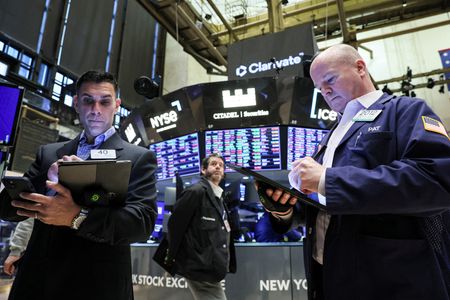 1
1 1
1

(Reuters) – Trading in new near-dated U.S. options contracts can supercharge volatility in U.S. stocks, potentially leading to tremendous intraday declines, analysts at JPMorgan said.
The U.S. equity options market has seen a rise in the trading of options contracts set to expire at the end of the trading day – dubbed 0DTE (zero day to expiry) options – with their daily notional value rising to about $1 trillion, according to JPMorgan data.
Their recent growth has been eyed as one cause of intraday volatility, with JPMorgan’s Marko Kolanovic last month warning they could spark a massive volatility event under certain circumstances.
In a Monday note, the bank’s analysts attempted to further quantify the derivatives’ potential impact, estimating that in an extremely dire scenario, 0DTE options could turn an intraday 5% drop in the S&P 500 into a 25% rout – a magnitude of decline not seen since the Black Monday crash of 1987, when the index fell 20.5%.
Such a scenario could occur if the S&P 500 fell 5% in five minutes, triggering $30.5 billion in 0DTE option-related trading that would tack another 20 percentage points onto the index’s decline, the bank’s analysts said.
If the S&P 500 fell between 1% and 5% in five minutes, it could lead to an unwinding of positions in the range of $6.6 billion to $14.2 billion, translating to an additional 4 to 8.1 percentage points of decline, JP Morgan’s analysts said.
“The estimated market impacts from unwinding of 0D option exceed the original market shocks in all scenarios, highlighting the reflexive nature of the 0D options and their potential risk posed to market stability,” JPM analysts Peng Cheng and Emma Wu wrote in a note.
Furthermore, JPM noted that retail traders were not the main driver of volume growth in 0DTE options, with individual investors accounting for about 20% of the SPDR S&P 500 ETF Trust options volume and only around 5% of the S&P 500 same-day options.
(Reporting by Ankika Biswas in Bengaluru, additional reporting by Medha Singh; Editing by Ira Iosebashvili and Matthew Lewis)